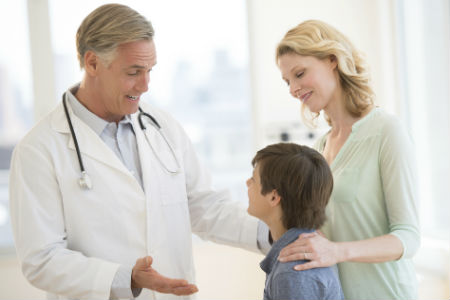Back To School Doctor Appointments: 8 HPV Topics to Discuss
0 Comments
1. What is HPV?
HPV (short for human papillomavirus) is a virus that could affect your son or daughter. For most, HPV clears on its own. But, for others who don't clear certain types, HPV could cause significant consequences: cervical, vaginal, and vulvar cancers in females and anal cancer in both males and females. Other types could cause genital warts in both males and females. And there's no way to predict who will or won't clear the virus. tetmc/Thinkstock

2. Who does HPV affect?
HPV is common, and HPV can infect males and females. According to the Centers for Disease Control and Prevention, about 79 million Americans are currently infected with HPV and there are approximately 14 million new HPV infections in the United States each year. Half of these infections occur in people ages 15-24. For most, HPV clears on its own. But for others who don't clear certain types, HPV can cause significant consequences. Monkey Business Images/PhotoSpin

3. Why is HPV something to be concerned about?
Many times an HPV infection won’t show any symptoms, and the body clears the infection on its own. However, if HPV does not go away, it can have consequences later in life, including certain cancers and diseases. monkeybusinessimages/Thinkstock

4. How do you become exposed to HPV? How is it passed from person to person?
Exposure to HPV can happen with any kind of adolescent experimentation that involves genital contact with someone who has HPV — intercourse isn't necessary, but is the most common. It may take only one encounter to be infected with HPV. HPV often has no visible signs or symptoms, so many people are not even aware that they have it. That means someone can pass on the virus without knowing it. Lev Dolgachov/PhotoSpin

5. What kinds of diseases and cancers can HPV cause?
Many people may have only heard about cervical cancer being caused by HPV, but there are other HPV-related diseases that can affect females, as well as males. Certain types of HPV cause genital warts and anal cancer in males and females, and other types cause cervical pre-cancers and cancer, vaginal cancer and vulvar cancer in females. Monkey Business Images/PhotoSpin

6. Can HPV infections be treated?
No. But, if the infection does not clear, and a HPV-related disease develops, treatments are available. MonkeyBusiness Images/PhotoSpin

7. How can I help protect my son or daughter against certain HPV-related diseases?
Knowing as much as you can about the potential risks of HPV exposure is the first step toward helping to protect your son or daughter. Your child's doctor or health care professional, who can be one of your most important resources for information and guidance, can help to clarify things for you. Be sure to ask your doctor about ways to help prevent HPV-related diseases and cancers, including vaccination. MonkeyBusiness Images/PhotoSpin

8. When should I speak with my child’s doctor about HPV?
The best time to get the facts about HPV and its potential consequences is before exposure. Lev Dolgachov/PhotoSpin